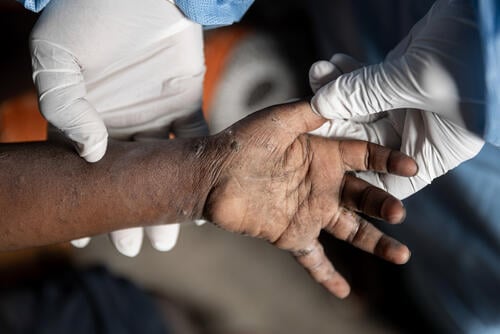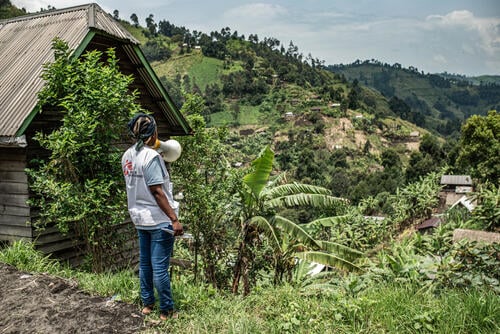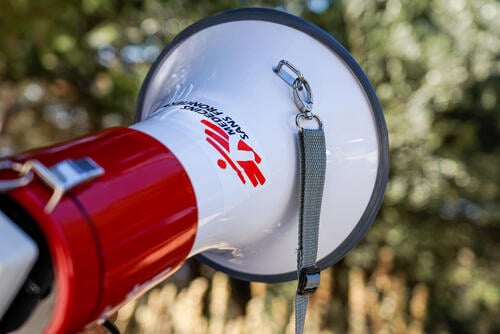Dr Tejshri Shah, General Director of MSF and a paediatrician specialising in infectious diseases, recently returned from North Kivu, an eastern province of Democratic Republic of Congo (DRC). DRC is the country at the epicentre of the current mpox, previously named monkeypox, epidemic in Africa. She emphasises that containing the virus in sites for displaced people will be impossible unless efforts are made to listen to people’s needs and improve the appalling living conditions they have been struggling with for too long.
In Goma, the capital city of North Kivu province, many people I talked to seem to sense that something new, uncertain, and frightening is coming. But no one can yet predict what it will mean for them or how deeply it will impact their lives.
Mpox is not new in DRC. The disease is endemic in several parts of the country, and notifications of cases have been on the rise for the past decade. However, in the Kivus (an eastern region of DRC), the virus has mutated into a form that seems to be more transmissible between humans. This is a significant concern as cases have been reported in densely populated areas like Goma – a city of two million people – and in sites where hundreds of thousands have sought refuge due to the ongoing armed crisis in North Kivu.
While the lethality of this new strain remains limited, there is still reason to worry. Why? Because conditions necessary to prevent it from spreading in and around Goma are simply not in place. Additionally, the capacity to provide care for those patients most at risk of complications – young children, people with advanced HIV – remains limited.
How can we expect families living in tiny shelters, without adequate water, sanitation facilities, or even soap, to implement preventive measures? How can malnourished children have the strength to ward off complications? And how can we expect this variant – which is notably transmitted through sexual contact – to not spread in displacement sites given the dramatic levels of sexual violence and exploitation affecting girls and women living there?
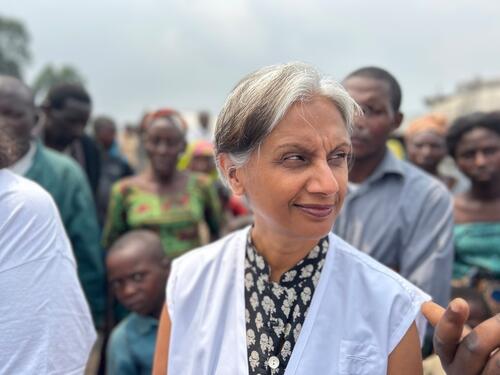
Médecins Sans Frontières (MSF) has repeatedly denounced the inhumane living conditions that people face in the camps and the glaring gaps in the humanitarian response. More than two years after the start of the so-called M-23 crisisM-23 is an armed group operating in eastern DRC. and the mass displacement it triggered, families living in the overcrowded camps still lack the essentials: food, water, safety, basic hygiene items, as well as access to sanitation services and healthcare.
During a counselling session that I attended with survivors of rape, a woman told me she lives with her seven children under a plastic sheet. Her partner abandoned her after the rape. For women like her, the tried-and-tested solutions to prevent the spread of the epidemic are unimaginably difficult to implement. If she develops a rash due to mpox, she will be told to change her linens, wash everything thoroughly, disinfect her belongings, and isolate herself until she heals.
But how can she wash without soap and with only a few litres of water available each day? How can she isolate herself and protect her children while living together under their minuscule plastic sheeting shelter? If she isolates, who will get food for the kids? Who will collect firewood? Who will comfort the newborn?
For her and all those who have sought refuge in the displacement camps, the mpox epidemic feels like just another challenge amid a torrent of problems. And, frankly speaking, not the most urgent one given the daily struggles they face, including outbreaks of other life-threatening diseases such as measles or cholera.
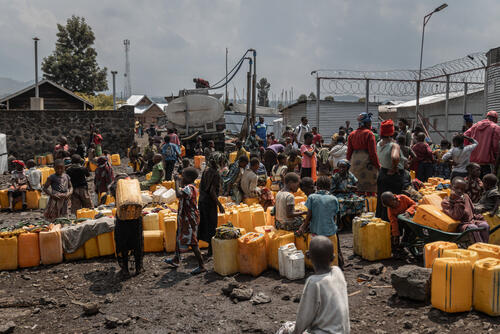
Yet, mpox is there and needs to be tackled. To address this new, additional challenge, we need to make survival easier for people through a response that is tailored to their specific needs and real-life challenges. This starts by listening to people, understanding their needs and providing them with basic supplies for infection control: water, soap, disinfectant, sanitary installations. These are simple but essential.
We cannot rely solely on the arrival of vaccines to fix the problem. Improving people’s living conditions is also a critical factor in fighting such outbreaks.
Together with health authorities, our teams do their best to provide care and raise awareness for those living on the sites, as we do in other parts of the country affected by the outbreak. Like many others, we hope that the long-awaited vaccines will arrive in the country as soon as possible.
Still, vaccination will not be a magic bullet: governmental and non-governmental bodies must also urgently address the foundations of the mpox response, which must be adapted to the needs and realities of the people.
On Wednesday 15 August, the World Health Organization (WHO) declared the surge in mpox cases a Public Health Emergency of International Concern due to rising infections in several countries, particularly in Africa. The WHO emphasised the urgent need for enhanced surveillance, vaccination, and public health measures to control the outbreak.
In DRC, mpox is endemic in several provinces. Last year, reported cases increased significantly, and already the number of cases reported so far this year has exceeded last year’s total, with more than 20,000 suspect and confirmed cases, and over 630 deaths, from January and up to 2 September 2024.
MSF has set up operations to address the mpox epidemic in four provinces of the DRC (North and South Kivu, South Ubangi and Equateur) as well as in neighbouring Burundi for prevention and treatment of mpox, awareness raising and infection control.



